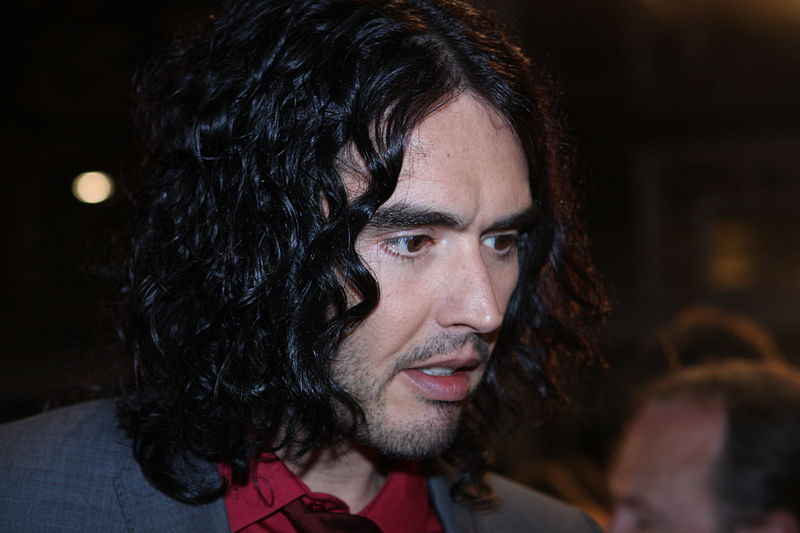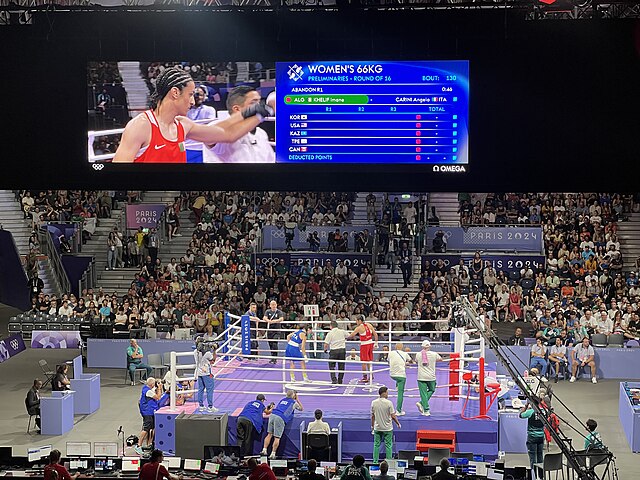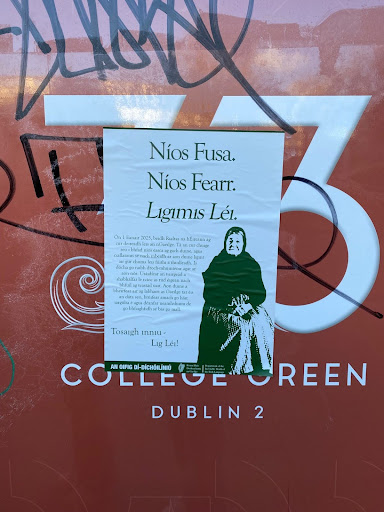Danielle Courtney | Contributing Writer
Is Russell Brand at the forefront of a revolutionary political movement, or just promoting his new book? For the most part I’ve been blissfully ignorant of his recent controversies, but the general public have not. This week YouGov.com named Brand as the most despised celebrity political commentator in the UK, at 42 per cent negative contribution to political debate with a positive rating of only thirteen per cent. Yet his positive approval is higher than many other celebrities with significant public apathy like Bono, Leo diCaprio and George Clooney. In fact Brand’s positive score is only points behind public idol Emma Watson’s sixteen per cent.
With three-fourths of the British cabinet made up of millionaires, it’s interesting that Brand has so ignored the political system which could offer him a new, and arguably more useful, career path.
In his most recent appearance on BBC’s Newsnight, Brand heavily plugged his ‘True News’ video series along with his new book. The series debuted on Youtube in February 2014, and has put out 189 episodes so far, one of which recently addressed the Irish water charges. Whilst on the side of the Irish public, he fails to make a cohesive argument for the entirety of the eight minute video. With a scarf draped through his armpits, over his shoulders, and around his head – a conservative nod as he normally appears shirtless – he starts the video by mocking the Irish accent of the BBC reporter whom he will proceed to quote extensively, gets confused by changes in currency between dollars and euros, and then reads erroneous summations of Ireland’s financial crisis from his ever present wad of stray notes. Everyone has their point up to which nonsense is tolerated, and mine came seven minutes into his video when Brand references Africa as being a country, immediately after reading it aloud as a continent.
He fails to understand that many first world countries have neglected to invest in their infrastructure in the last thirty years, including the United States, and should the Irish government wish to, it could siphon the two billion euro to fix the entire water supply system from its budget, unlike the developing “country” of Africa that in many places suffers from crippling tax evasion and corruption. We don’t need to change our corporate tax system, which has brought countless jobs and industry to the country in recent years, to fix an unrelated systemic problem overlooked for decades. The only valid point he makes is that €86 million shouldn’t have been spent on consultants for Irish Water, but anyone could tell you that.
Especially irksome is his insistence that the poor in Ireland don’t have any means to rebuke their government. We do: its called our vote.
Especially irksome is his insistence that the poor in Ireland don’t have any means to rebuke their government. We do: its called our vote (not to mention the tens of thousands marching and protesting). We vote on who represents us in different assemblies every two years. A single landslide wipe out for the ruling party in local elections would ensure unilateral reversal of unpopular decisions. Wasn’t Sinn Fein always anti-water tax? We effect change by voting en masse, not least of which because people died for our right to do so.
But in light of Brand’s stance against voting, I suppose it makes sense for him to think we can’t respond to our government. In an interview with Jeremy Paxman on Newsnight, Brand addressed his right to political comment despite never voting as follows: “I don’t get my authority from a pre-existing paradigm which is quite narrow, and only serves a few people. I look elsewhere for alternatives that might be of service to humanity” before admitting he had not “invented those alternatives yet.”
According to the Telegraph, only 3 per cent of non-university educated Brits are millionaires, and now we have one who is also politically conscious.
Watching Brand’s interviews, I often find myself jotting down the linguistic complexities he seems to fluidly ad-lib. His mastery of language is brilliant, helped by regular alliteration and the occasional slang word like geezer. His wild humour and often facetious rebuttals to serious questions make him accessible, especially to the under twenty-five demographic, who according to YouGov’s poll absolutely love him. Students, despite studying at the very type of elite institutions he ridicules, are paradoxically his largest supporters, presumably due to our equally apathetic view toward voting and politics. As Brand says to Paxman, “There are not genuine changes and genuine alternatives being offered…Why would I encourage a constituency of young people that are absolutely indifferent to vote?”
With three-fourths of the British cabinet made up of millionaires, it’s interesting that Brand has so ignored the political system which could offer him a new, and arguably more useful, career path. According to the Telegraph, only 3 per cent of non-university educated Brits are millionaires, and now we have one who is also politically conscious. But on yet another Newsnight appearance (did you know he has a book out!), he quashed Evan Davis’ interrogation of why he wouldn’t run for office with a confused rant about not believing in the system. His technologically savvy escapades have brought him millions of followers, but if a revolution happens outside they’ll all be missing it. That is, at least as long as Russell Brand is busy making shirtless YouTube videos about Irish Water.
Photo by Eva Rinaldi







